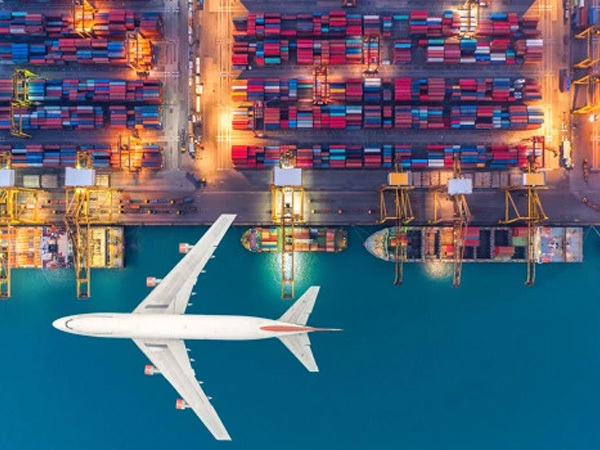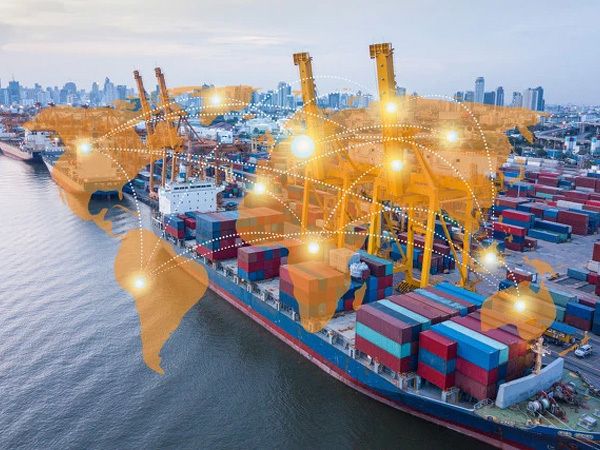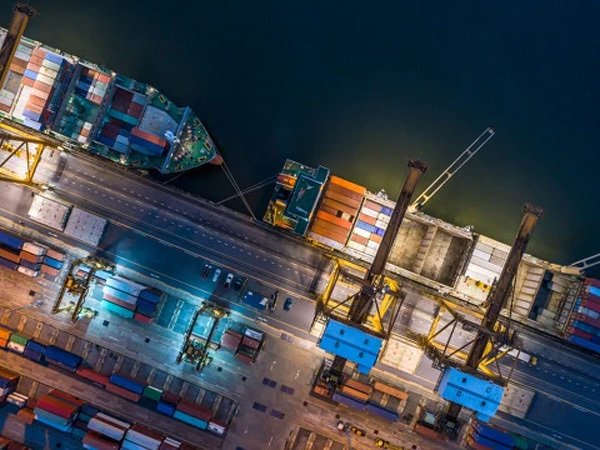Systematic view to stabilize exports to developed economies
Published:
2023-04-12
The State Council executive meeting held on April 7 pointed out that we should find ways to stabilize exports to developed economies and guide enterprises to explore developing countries' markets and regional markets such as ASEAN. Previously released data show that the first two months of China's import and export data fell slightly by 0.8% year-on-year, especially to the European Union fell 2.6%, to the United States fell 10.6%, to Japan fell 5.7%, which needs to draw the attention of our government agencies and enterprises.
The State Council executive meeting held on April 7 pointed out that we should find ways to stabilize exports to developed economies and guide enterprises to explore developing countries' markets and regional markets such as ASEAN. Previously released data show that the first two months of China's import and export data fell slightly by 0.8% year-on-year, especially to the European Union fell 2.6%, to the United States fell 10.6%, to Japan fell 5.7%, which needs to draw the attention of our government agencies and enterprises.
Looking at China's foreign trade situation in recent years, although ASEAN has now jumped to the top of our trade partners, but the proportion of China's trade with developed economies is still high. For example, exports to the United States accounted for 16% of our total exports in 2022. Therefore, stabilizing our exports to developed economies is of great importance for stabilizing foreign trade.
"We need to look at exports to developed economies from a long-term perspective. In general, the developed economies have stronger purchasing power and more sufficient demand, is a deep market for Chinese foreign trade enterprises. But in recent years, affected by geopolitical turmoil, the Russia-Ukraine conflict, global inflation and other factors, China's economic and trade cooperation with developed countries is facing more uncertainty." International Trade Center (ITC) Chief Economist Office of Trade Policy Advisor Zhao Quan said that how the future recovery of demand in developed economies, in addition to political direction, the progress of the resolution of the Russian-Ukrainian conflict, but also depends on the effectiveness of macroeconomic policies adopted by countries to reduce inflation.
Zhao Quan believes that the current situation will be more challenging for Chinese exporters, but if Chinese companies can overcome the difficulties and find a foothold, it will bring benefits to their future roots in developed economies. In his view, a systematic approach is needed to stabilize exports to developed economies, which can be done from the following aspects:
First, a better combination of stable foreign trade and stable foreign investment. Developed economies investing in China play an important role in China's foreign trade imports and exports, stabilizing foreign investment is conducive to stabilizing foreign trade. In recent years, under the role of political factors, especially the U.S. "decoupling" "chain-breaking" strategy poses certain challenges to the development of foreign investment in China, which requires China to continue to promote a higher level of openness, and constantly optimize the business environment, respond to the demands of foreign enterprises, and enhance foreign enterprises This requires China to continue to promote a higher level of opening up, continuously optimize the business environment, respond to the demands of foreign enterprises and enhance the confidence of foreign enterprises in China.
Second, the combination of tapping new demand and maintaining old demand. Wang Shouwen, international trade negotiator and vice minister of the Ministry of Commerce, said at a press conference held by the State Council Information Office on April 4 that the questionnaire survey of 15,000 enterprises from the Canton Fair that has been collected shows that declining orders and insufficient demand are the main difficulties encountered. For deeper digging demand, Zhao Quan said, for example, in recent years, the epidemic has somewhat changed the composition of consumer demand, with the development of science and technology home robotics, electric transportation, recreational equipment, and service trade and other aspects of the relative increase in demand, which may become China's export enterprises to tap the new demand.
Third, the combination of trade and foreign investment. Encourage emerging manufacturing enterprises, especially enterprises with a certain brand influence will be the industrial chain layout to the developed economies around the developing countries, in the vicinity to meet market demand, drive local employment, but also pull the higher technology content, higher value-added intermediate exports, drive China's enterprises and other developing countries together to better develop the international market. Especially at a time of rising trade protectionism, international political strife and treacherous clouds, the industrial chain, supply chain reconstruction appeared near-shore, friendly trend, to encourage enterprises to better global layout of the supply chain can better help enterprises to reduce the risks associated with trade barriers.
"But also the combination of trade in services and trade in goods, the formation of trade in services and trade in goods to promote each other's development pattern. In particular, the need to use the Canton Fair, the Fair, service trade, consumer Expo and other international exhibitions platform to promote economic and trade exchanges between China and foreign countries. Enterprises can invite customers to China to visit the field exchanges, feel the atmosphere of China's economic recovery, crack some of the prejudice against China formed by certain foreign media reports, so as to achieve the purpose of enhancing confidence and lead to orders." Zhao Quan said that stabilizing exports to developed economies will not only help China's development, but also help developed economies to come out of inflation. It is foreseeable that in the future, China will have more favorable policies in stabilizing foreign trade and foreign investment to help foreign trade enterprises to tide over the difficulties.
Previous
Previous

09:00-12:00 13:00-18:00 Mon-Fri

3rd floor, 116 Chogwangsandan-ro, Hanam-si, Gyeonggi-do, Republic of Korea 12989




